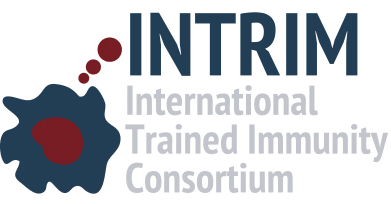Trained immunity and tuberculosis
Radboud university medical center, Nijmegen, the Netherlands
Otago University, Dunedin, New Zealand
Universitas Padjadjaran, Bandung, Indonesia
Research topic
There is an increasing appreciation that innate protection against tuberculosis (TB) is crucial for development of more effective strategies against the disease. Globally, TB kills an estimated 1.4 million people every year, and 50 million become infected. Protection against TB has long been considered to rely on adaptive immunity against M.tuberculosis (Mtb), but a new-generation vaccine that induced desired T cell responses against Mtb showed absolutely no protection against TB in a large clinical trial (Tameris, Lancet 2013). Mtb expresses highly conserved T-cell epitopes (Comas, Nat Gen 2010) suggesting it may even be in the interest of the bug to elicit a strong T-cell response.
Some people, even when heavily exposed to an infectious TB patient, do not get infected with Mtb. They almost certainly inhale Mtb, but contain or clear infection through innate immune mechanisms, before the adaptive immune response has a chance to encounter the pathogen. With collaborators in Indonesia (Dr Alisjahbana) and New Zealand (Prof Philip Hill, Dr Ayesha Verrall) we have studied such ‘early clearance’ among household members of infectious TB patients. We found that BCG exerted surprisingly strong protection against Mtb infection (40%), and that those who were protected had altered innate immune cell distributions and cytokine responses. This has led us to hypothesize that BCG-induced ‘trained innate immunity’ (TRIM), with epigenetic and metabolic reprogramming of innate immune cells, contributes to early clearance of Mtb.
In the next few years we aim to examine if TRIM indeed contributes to natural protection against Mtb infection, and if this can be harnessed to protect individuals at risk of becoming infected. To do so, we will combine studies in Mtb-exposed individuals with state-of-the -art laboratory profiling and experimental models and intervention studies.
Group leaders
- Reinout van Crevel, MD, PhD, professor in global health and infectious diseases
- Mihai Netea, MD, PhD, professor in experimental internal medicine
- Philip Hill, MB ChB, MPH, MD , professor in international health
- Bachti Alisjahbana, MD, PhD, head of TB-HIV research center, Universitas Padjadjaran
Group members
- Valerie Koeken, MSc, PhD student
- Ayesha Verrall, MD, PhD student
- Lika Apriania, MD PhD student
- Arjan Van Laarhoven, MD, PhD student
- Jakko van Ingen, MD, PhD
- Simone Moorlag, MD, PhD student
- Charlotte de Bree, MD, PhD student
Selected publications
- Verrall AJ, Netea MG, Alisjahbana B, Hill PC, van Crevel R. Early clearance of Mycobacterium tuberculosis: a new frontier in prevention. Immunology. 2014;141:506-13.
- Verma D, Parasa VR, Raffetseder J, Martis M, Mehta RB, Netea M, Lerm M. Anti-mycobacterial activity correlates with altered DNA methylation pattern in immune cells from BCG-vaccinated subjects. Sci Rep. 2017;7:12305.
- Lerm M, Netea MG. Trained immunity: a new avenue for tuberculosis vaccine development. J Intern Med. 2016 Apr;279(4):337-46
- Joosten SA, Meijgaarden KEV, Arend SM, Prins C, Oftung F, Korsvold GE, Kik SV, Arts RJ, Crevel RV, Netea MG, Ottenhoff TH. Mycobacterial growth inhibition is associated with trained innate immunity. J Clin Invest. 2018 Feb 20; doi: 10.1172/JCI97508. [Epub ahead of print]
- Hill PC, Ota MOC. Tuberculosis case-contact research in endemic tropical settings: design, conduct, and relevance to other infectious diseases. Lancet Infect Dis 2010;10(10):723–32.
Financial support
- Netherlands Foundation for Scientific Research (NWO)
- Radboud University
- Health Research Council, New Zealand
